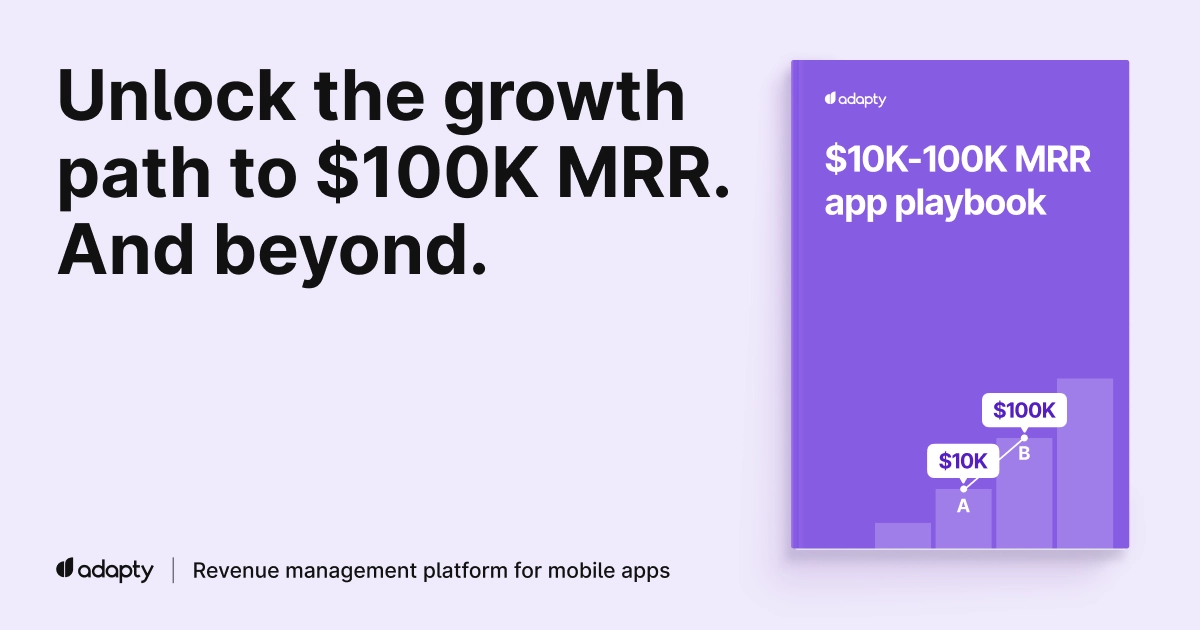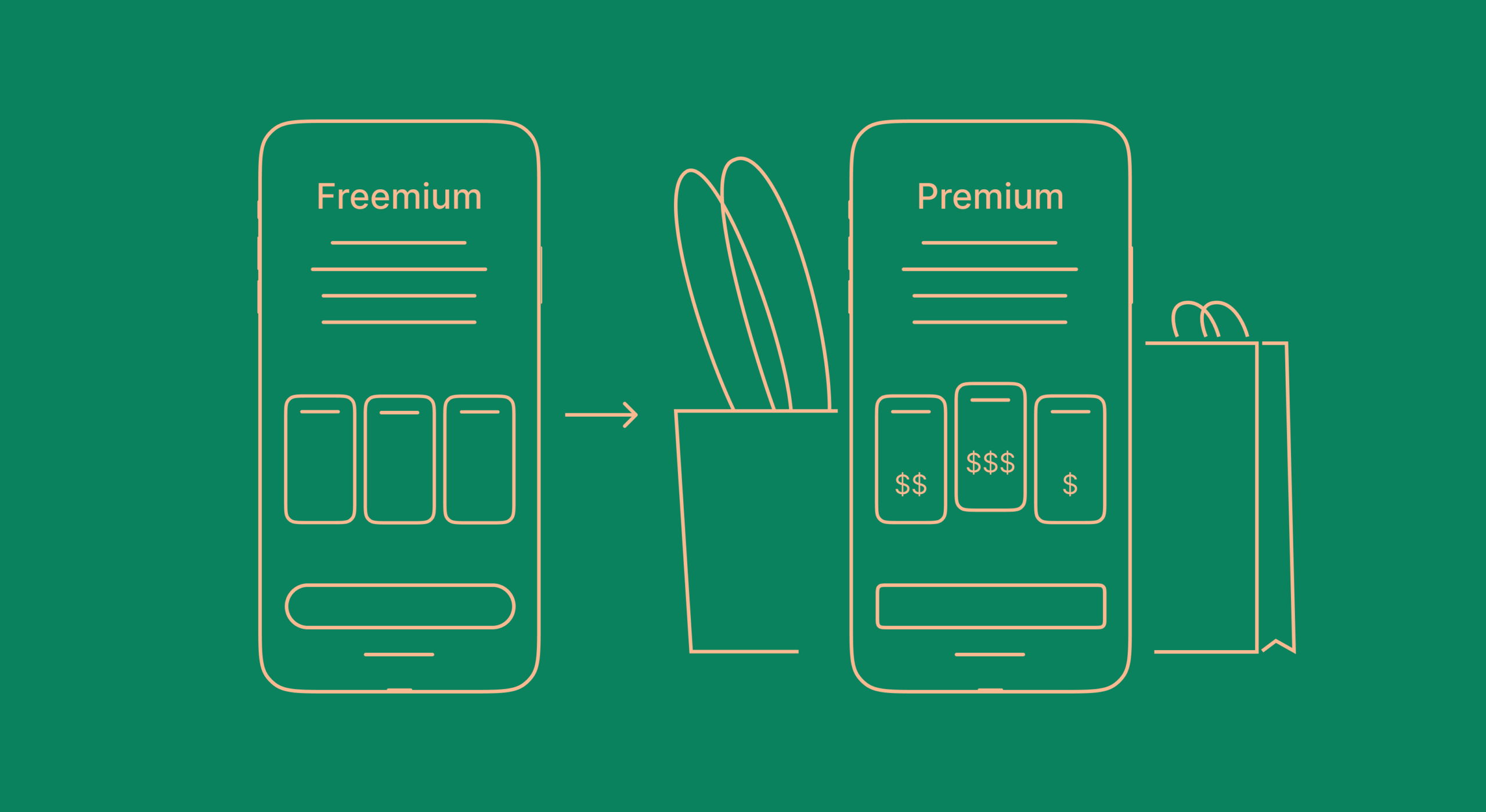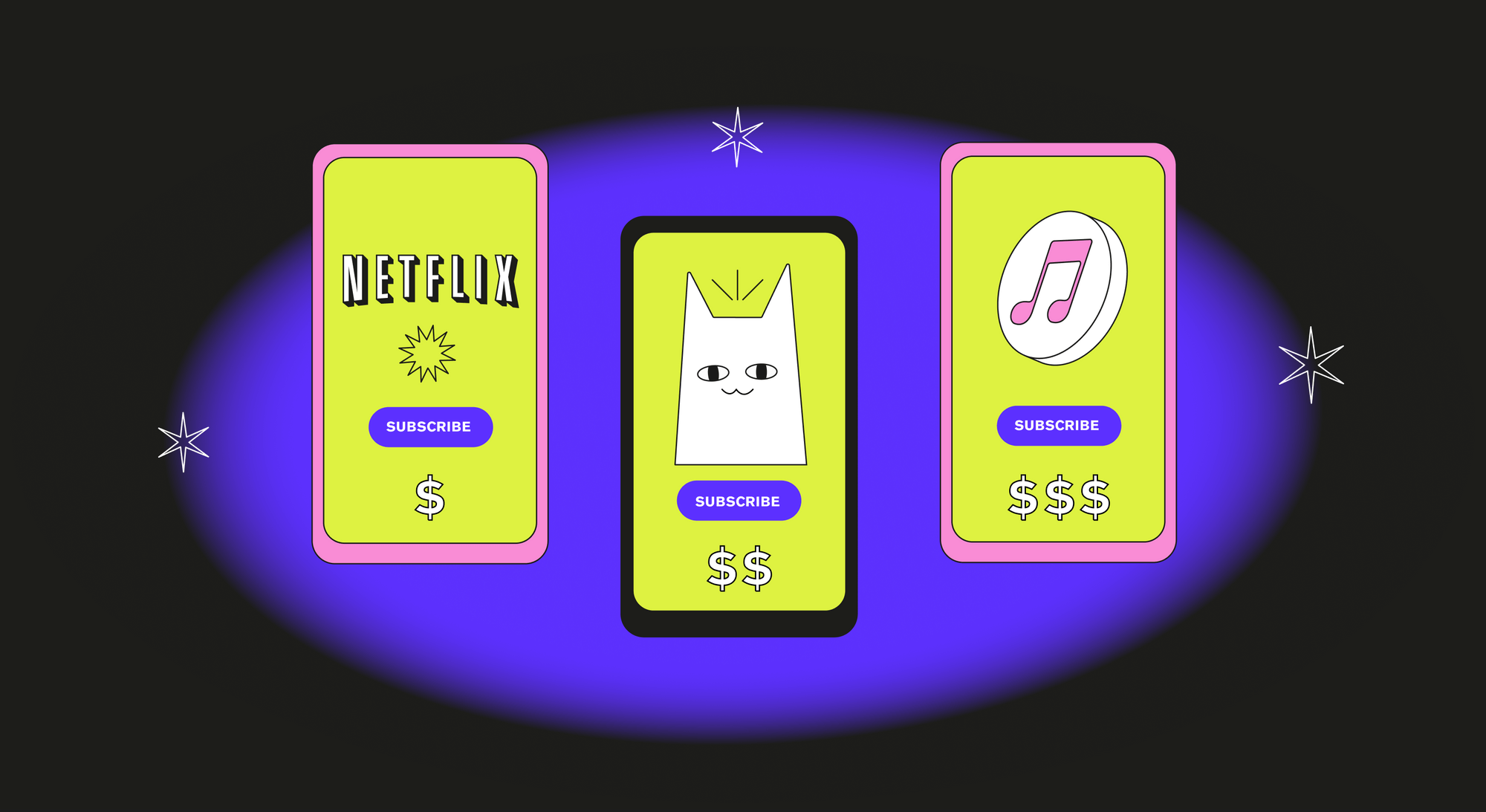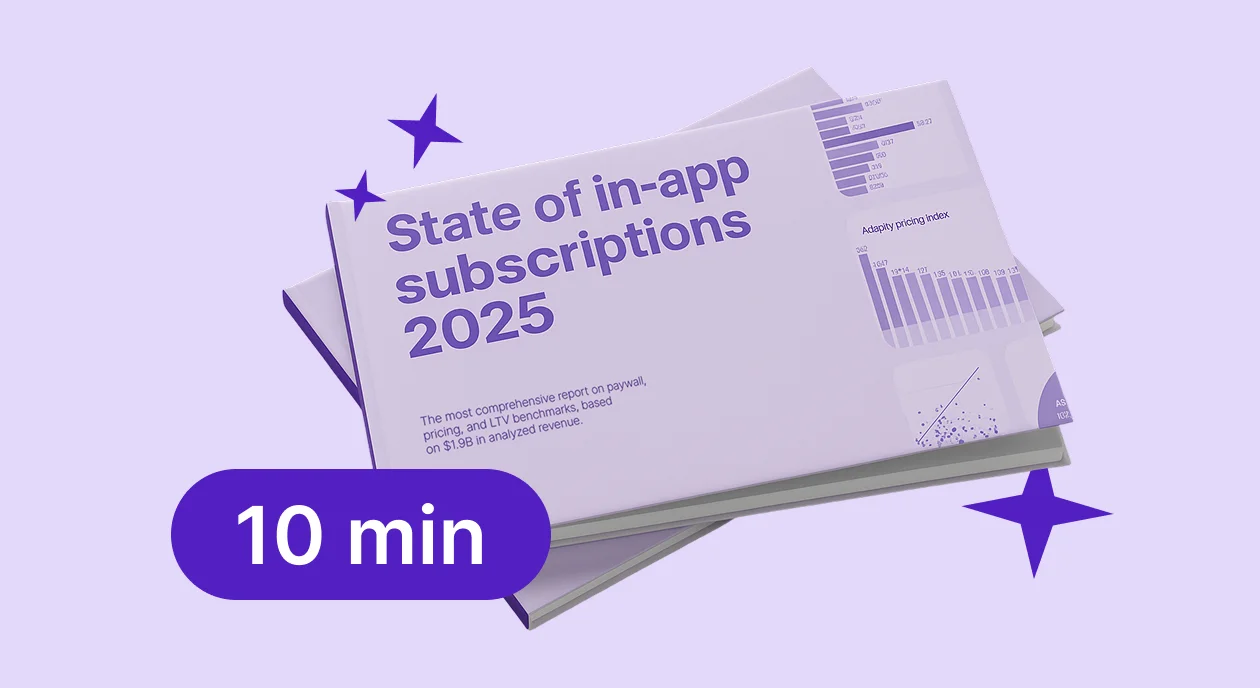App Annie claims that 94% of all top 250 apps in the App Store are monetized using an in-app subscription. The same is true for the vast majority of apps that are not as popular. Usually, only 3–5% of all users convert into buying a subscription and 80% of them cancel it after a couple of months. How do you handle such a churn?
Subscription is the main monetization method, but there is a catch
Subscriptions became a predominant way to monetize mobile applications in the last 5 years:
- It is profitable for Apple and Google. They get a 30% cut during the first year and 15% onwards.
- Recurring payments provide developers with a stable income. Users are no longer forced to repurchase new versions of the same app.
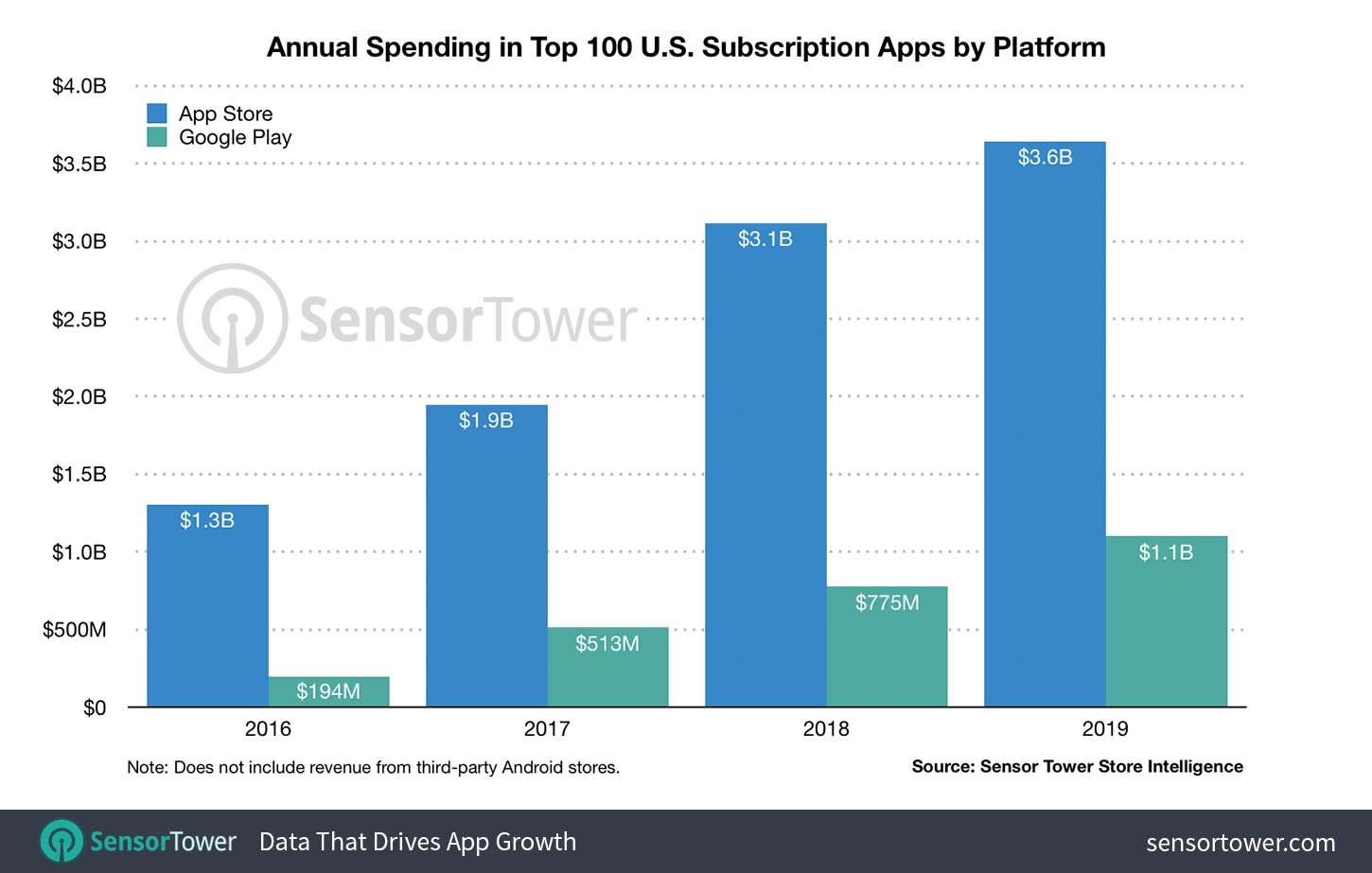
Activating a subscription is easy: with a bank card already attached, all you need to do is to verify your purchase with Face or Touch IDs.
As a consequence, subscriptions became a target for scammers. The scheme was simple: a paywall was set up during the onboarding in the scammer’s app and traffic was bought. A user would then be tricked into buying a subscription for a completely useless functionality. (Users then would most likely delete an app but the subscription will be automatically renewed nevertheless). The scheme worked well even with low traffic budgets.
In 2018 the App Store scamming scheme became widely discussed. Apple didn’t hesitate to fix the issue: the subscription process was changed to be more transparent while the reviewing process became more vigorous. For instance, now, when you are deleting an app with an active subscription, a pop-up appears to remind you about the subscription. As a result of Apple’s measures, users started to churn. Many companies made it only because of the “heavy tail” — users who forgot about a subscription and removed an app before updating to iOS 13. With Apple being stricter, analysts anticipate a tougher life for apps with subscriptions in the future.
In Adapty, we can see that the situation develops in a forecasted way:
- The market becomes highly competitive, 94% of top-250 apps are monetized using subscriptions. The rest of the apps follow the same tendency.
- Only 3–5% of users convert into subscribers with an 80% churn rate by the third month.
- The competition is fierce. There are almost 2 million mobile apps available on the market.
- Just putting a paywall into the onboarding process doesn’t work any longer, there must be another way to monetize.
Our experience with in-app subscriptions
Problems stated above are easily converted into more manageable tasks. Before Adapty, we developed a mobile app with subscriptions and had several associated issues:
- Integrating subscriptions and gathering information about payments. Surprisingly, integrating a subscription is a murky matter. Not only do you need to adapt a client to work with it, but also you need to create a server for handling Apple events. Without the latter, you won’t know about renewals or cancellations. Moreover, you need to match the user ID with corresponding transactions, store this mapping in a database, and match it with other events. After that, the events need to be sent to an analytics system (Mixpanel, Amplitude) or attribution system (Appsflyer, Adjust, Branch).
- A/B testing a paywall. We had to create a perfect offer for each user cohort. On one hand, one could use Firebase for this, but on the other, you can face some problems: how to target and how to measure the result. Eventually, we had to calculate the results in Excel.
- Converting those who are very close to subscribing but are still in doubt. One can do that using promotional offers through the app’s internal mechanics, but since March Apple also allows promo push-notifications.
- Calculating unit economy of the app. When releasing a campaign, we had to constantly check the economy.
- Managing subscribers. We had to manage individual subscribers regularly.
We developed most tools in-house and they required constant support. Because of system complexity, there were two times when subscriptions didn’t work at all for a couple of days (clap if you have the same issues)
How Adapty helps the app monetization
After inventing the wheel, we talked with fellow developers and realized that the majority had the same problems. As a result, we decided to build Adapty as a standalone product.
It is hard to develop an app, but it is even harder to monetize it. We are developing Adapty to help developers monetize applications so they can concentrate on the product. We have decided to start with in-app A/B testing for paywalls, and here is what we have now:
- Paywall A/B testing without releasing the app.
- Dashboard with vital monetization metrics.
- SDK for in-app purchases integration with promotional offers support.
- A way to send information about sales and exclusive offers using push notifications, which helps to convert users into paying ones.
Using Adapty: Ready to go Dashboard without coding
Connect Apple Sales Reports and instantly get analytics and reports. You will see a dashboard with your app’s metrics: MRR, churn rate, cancelation reasons, and much more. Also, you will receive reports with daily, weekly, or monthly performance info via email or Slack.
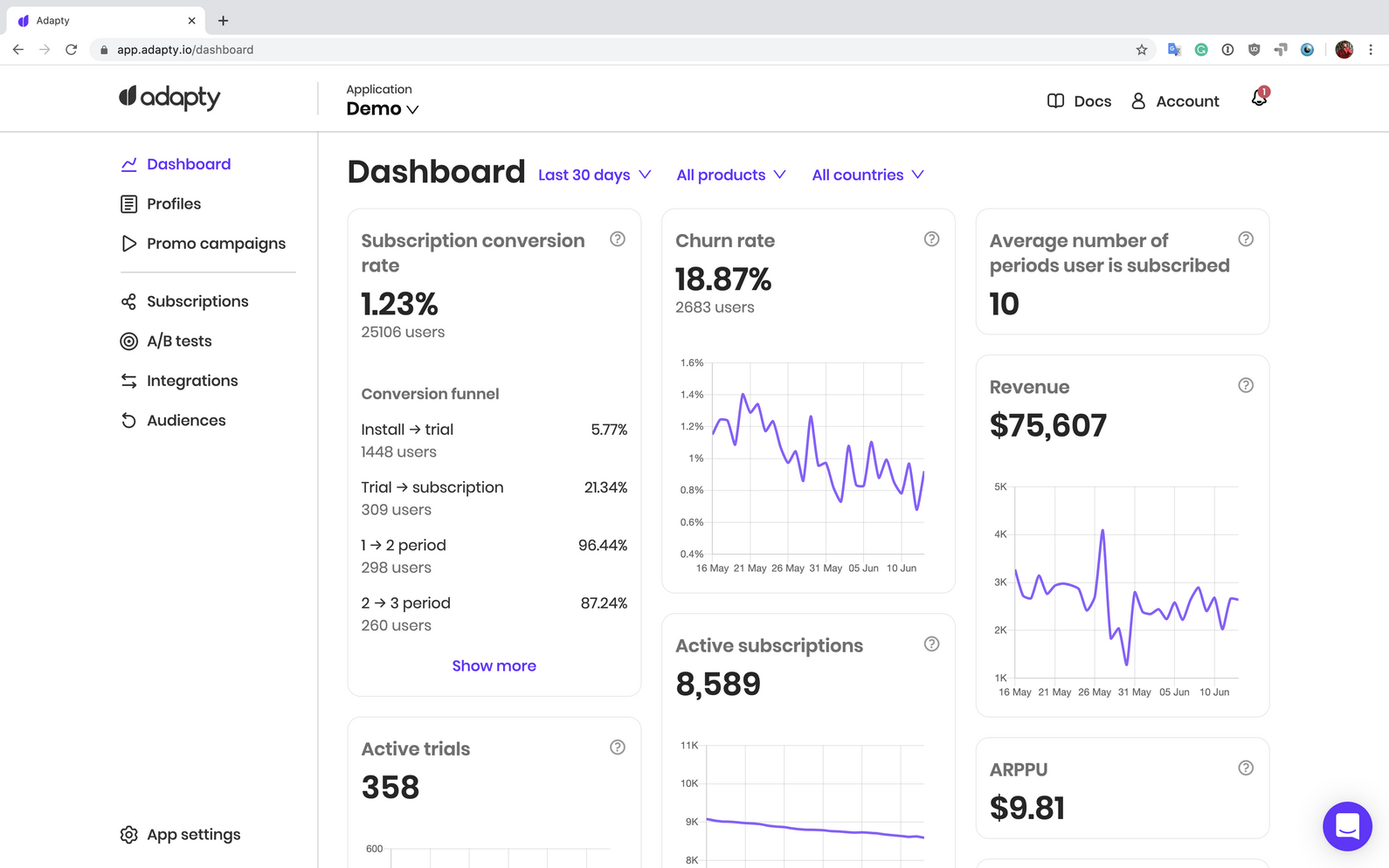
Simple SDK for integrating purchases
With installing SDK great features unlock such as purchases framework, A/B testing for paywalls, promo campaigns in push notifications. SDK is literally a proxy for API and it weights 164kb (source code). It’s 100% open source.
SDK works in two modes:
- Observer. With a single line of code, you get everything besides server verification of the purchases. It is best suited if you have legacy infrastructure and are not ready yet to switch to another one.
- Manager. 5 methods and you fully manage your purchases: server verification and purchase recovery and everything in between.
A/B Testing to boost your conversion rates
A paywall in Adapty behaves like a container — a placeholder on the device with all the content stored and managed from the server.
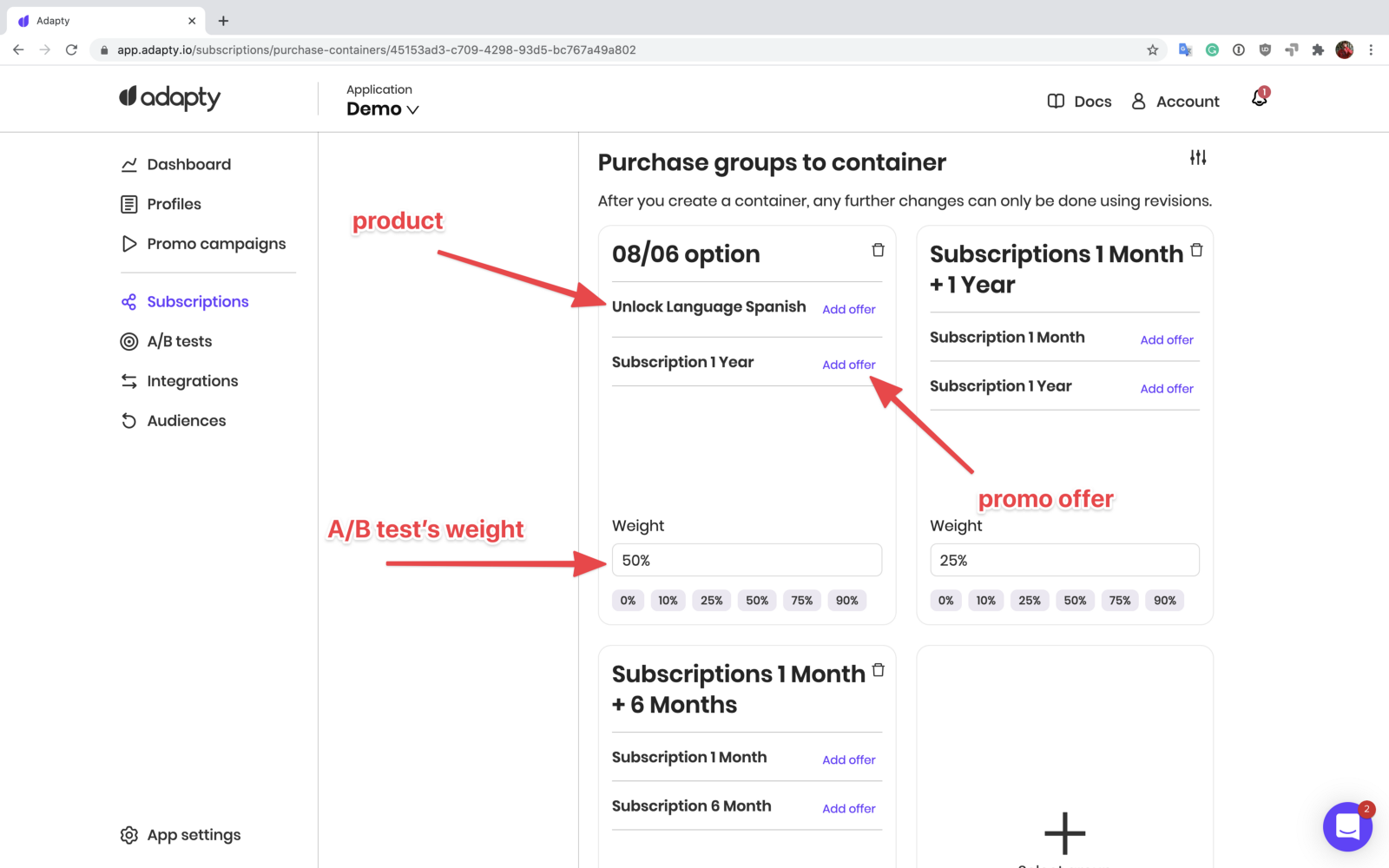
After the experiment, Adapty performs stats tests and metrics calculations:
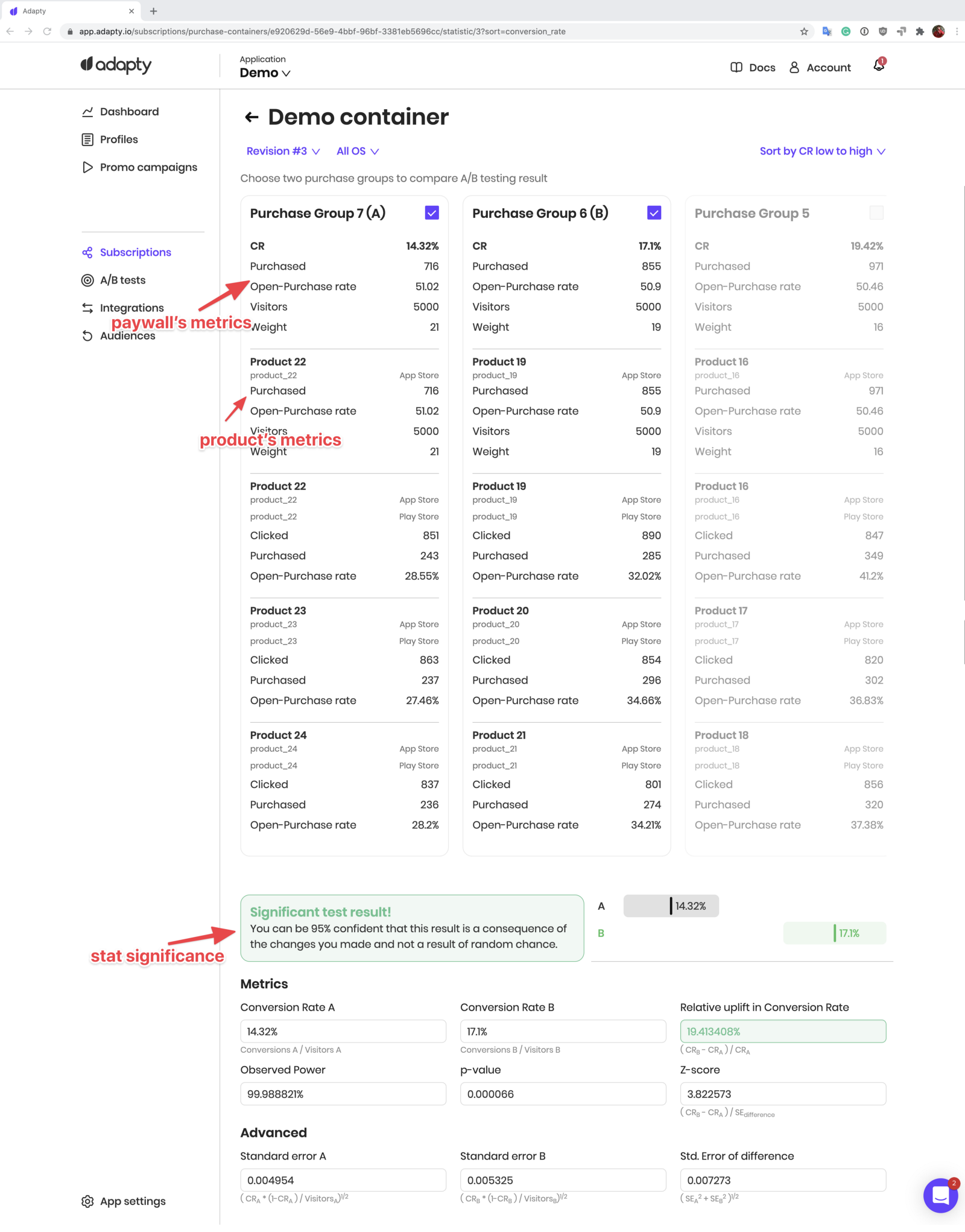
Tests also have versioning, so different configurations do not conflict with each other.
Adapty incapsulates products from various platforms into one inner product. This means that purchases on different platforms are represented as makePurchase(<productid>), where productID is the same for all platforms.</productid>
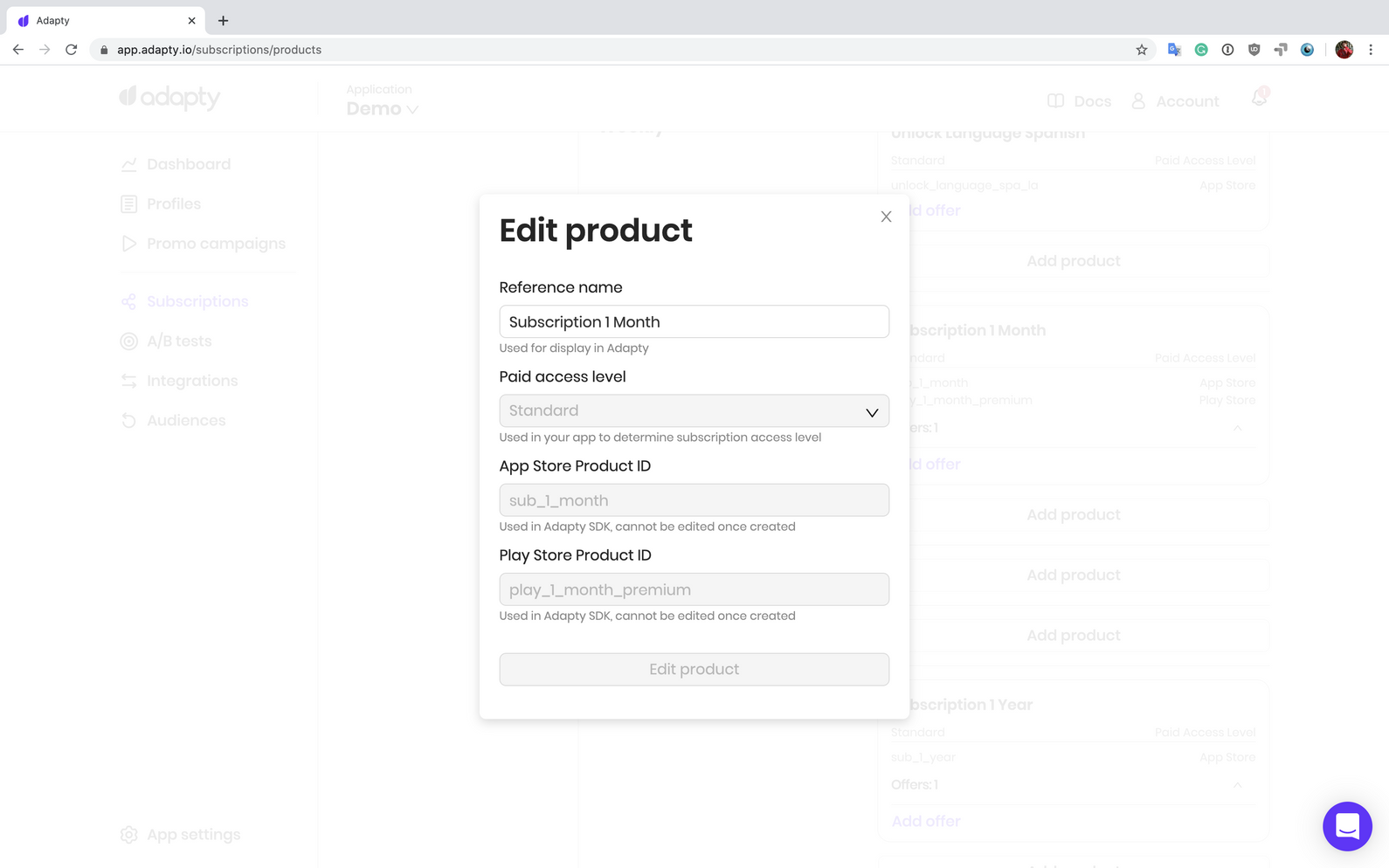
Integration with analytics and attribution systems
Adapty generates 13 event types and can redirect them to other services. For instance, you can integrate it with AppsFlyer and pay media agencies for traffic using a CPA model.
You can also change the user ID for each analytics system separately.
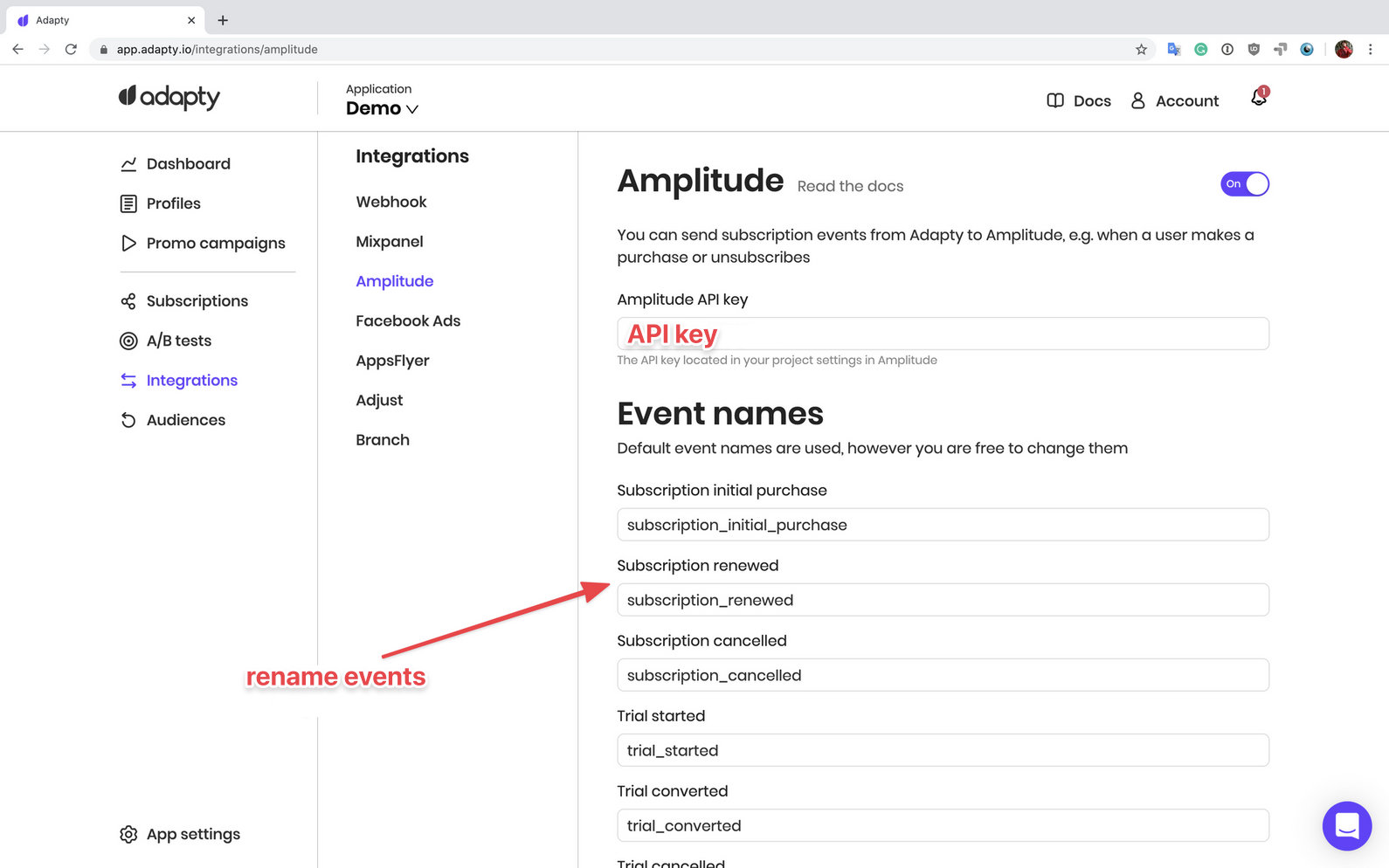
Support automation using CRM
Sometimes users message the support about broken or bugged subscriptions, the purchases not going through, or other payment difficulties. In this case, to help a user, it is important to understand who he is and what is his purchase history. Such support is done even by the Calm app. Adapty helps to make this process easier.
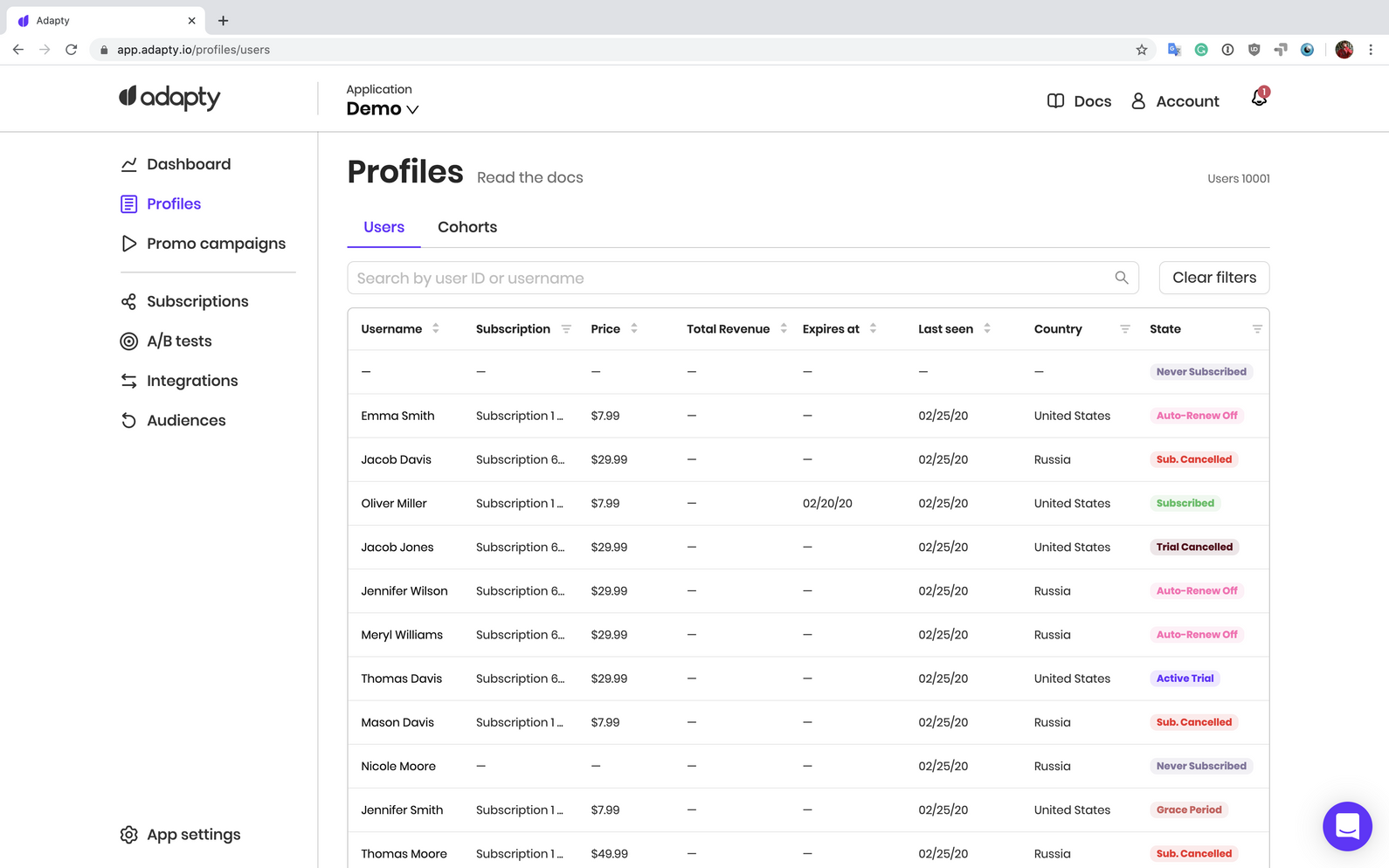
You can look up full information about each user.
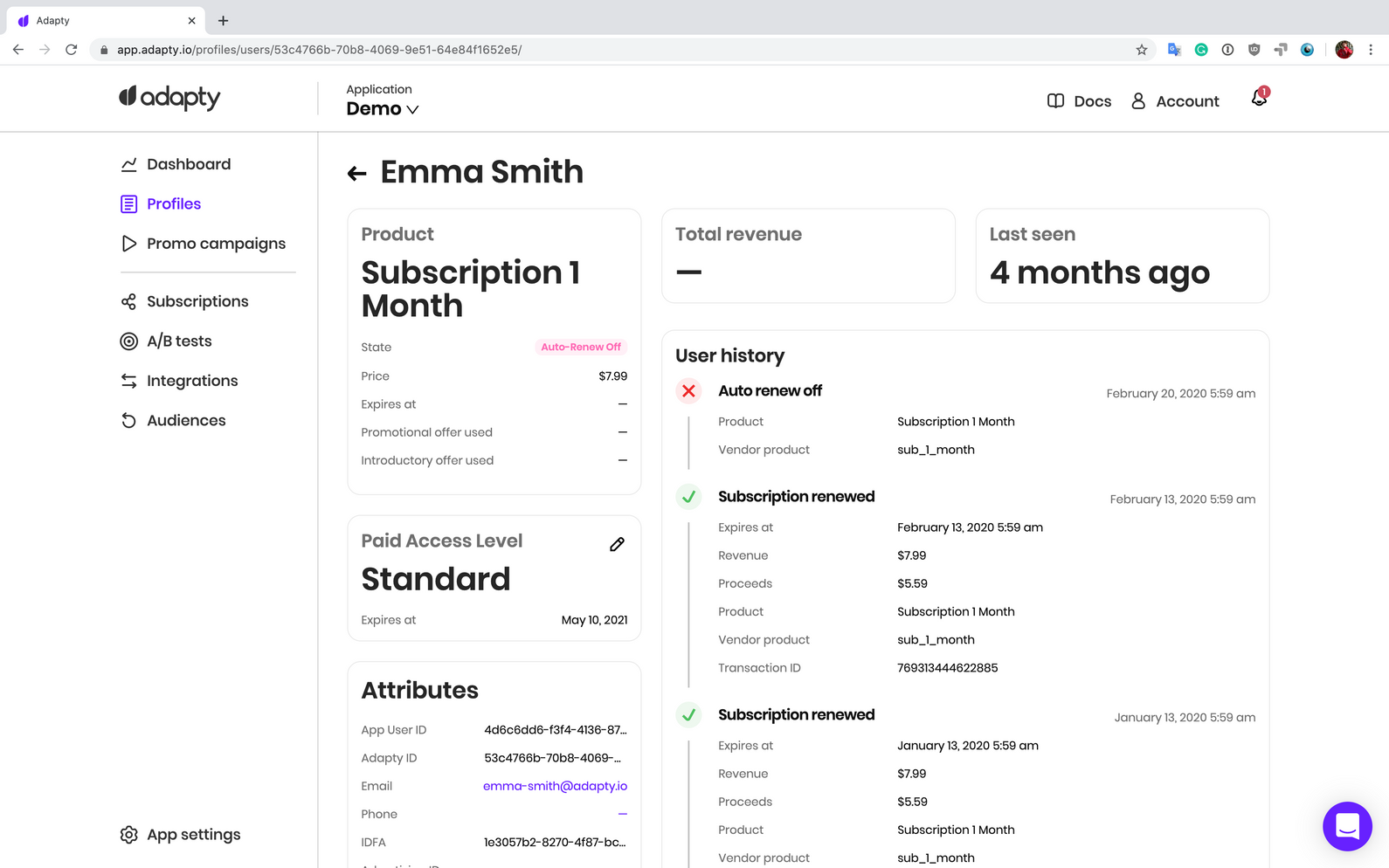
Moreover, you can manage the user access level in the app and choose what functionality is available for him. Imagine you had a technical issue in the app and someone posted a bad review in the App Store as a result. To make the user happy again, you can unlock free premium access for a limited time.
Automating the process of sending promo push notifications
The majority of users do not pay, but you can convert them into paying ones. Retargeting traffic is a very expensive tool for such a task and usually puts a strain on the economy. But sending a promo in the push notification is free.
In Adapty you can send push notifications to user cohorts that have completed a certain action.
Adapty helps your mobile app’s growth
Integrating Adapty takes about 10 minutes without an SDK and an hour with it. As a result, you get analytics and a full infrastructure for your subscriptions, including A/B tests and promotional push notifications.
As an alternative, to get similar functionality, you can create a stack including a server, Firebase, Amplitude, Excel, and so on. Such a stack is time-consuming to create and it needs constant support.
Our data shows that after A/B testing your purchases, depending on the volume, the revenue can grow up to 40%.
Adapty proved to be stable for more than half a year. Companies buy traffic and pay agencies using our events, handle in-app purchases, and create A/B tests. Recently we have released all features and were featured on Product Hunt.
If you think Adapty can help you with development, marketing or monetization, reach out to me at [email protected] or on Facebook. We are happy to provide you with a demo, help with creating an account and integrating the SDK.


